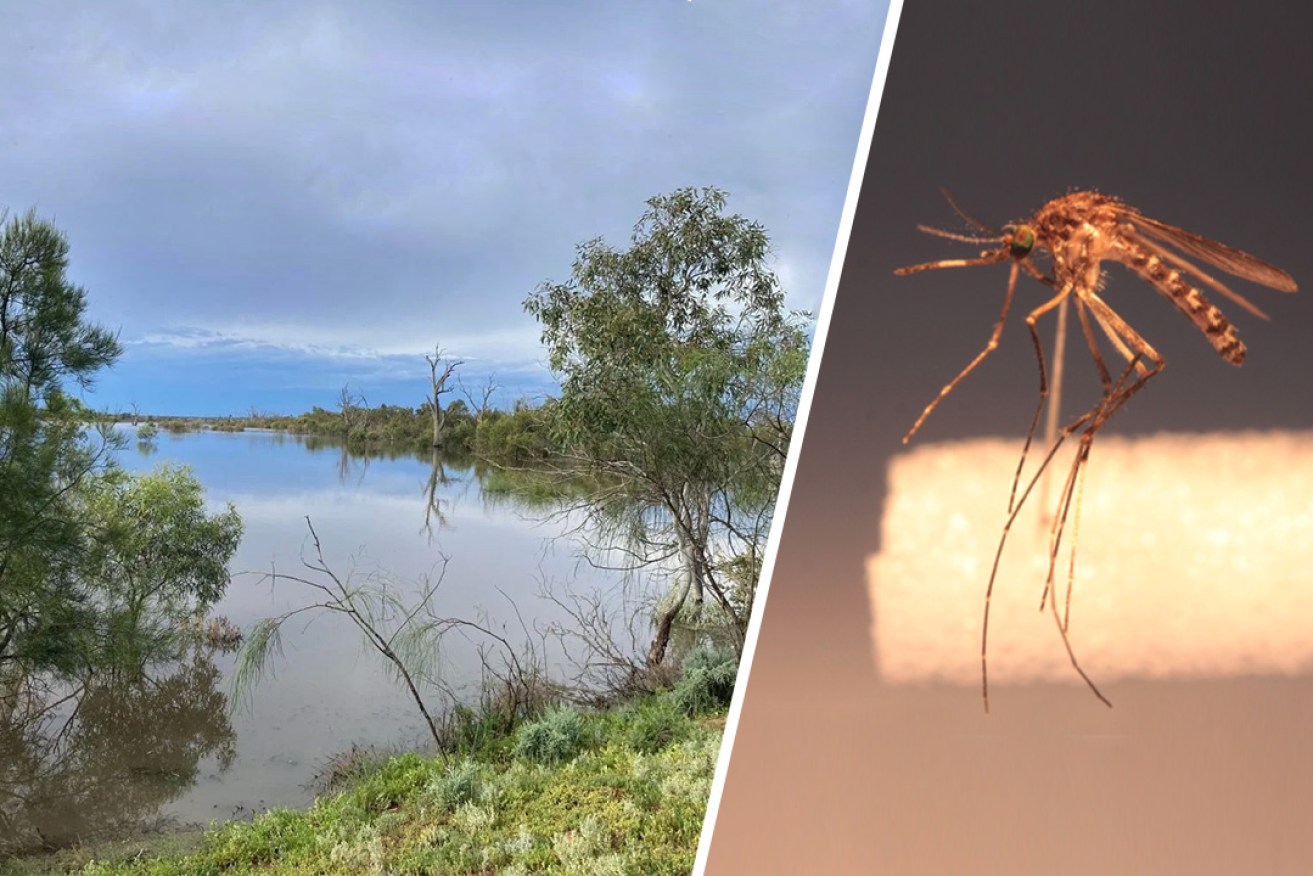First Riverland Japanese encephalitis case confirmed
A Riverland man aged in his 80s has contracted the potentially deadly Japanese encephalitis virus following health warnings about an explosion in mosquito numbers as the River Murray floods.

A River Murray backwater (photo supplied), and a banded mosquito which can carry Japanese encephalitis virus. (Photo: inaturalist mozzie monitors). Image: Jayde Vandborg/InDaily
SA Health said this morning that the man was likely to have recently acquired the mosquito-borne infection and was currently recovering at home after being discharged from hospital.
The case brings this year’s total number of confirmed Japanese encephalitis virus (JEV) infections in South Australia to 10, with two deaths also reported.
Health authorities are worried there could be a spike in infections across River Murray communities, where flooding swamps and backwaters are breeding swarms of mosquitoes.
Symptoms of JEV include confusion, headaches, tremors, drowsiness, neck stiffness and seizures.
According to SA Health, only one in 250 people who get infected experience symptoms, with a “small proportion” will develop encephalitis (inflammation of the brain), which can be fatal or cause long-term neurological damage.
University of South Australia expert in mosquito-borne disease Professor Craig Williams told InDaily earlier this week that about 12 mosquito species – including the banded mosquito which can carry JEV – were breeding across the Riverland.
He said mosquito numbers would likely peak in February.
SA Health is encouraging people to avoid exposure to mosquitoes and for those in the Riverland to get vaccinated against JEV as soon as possible. The vaccine is available at pharmacies and GPs.
So far, 15,000 people have been vaccinated, with SA Health having 26,000 vaccines in total.
Alongside JEV, mosquitoes in South Australia can also carry other viruses including Ross River virus, Murray Valley encephalitis virus, West Nile virus (Kunjin variant) and Barmah Forest virus.
“People should reduce their exposure to mosquitoes by covering up with light-coloured, long sleeved, loose-fitting clothing, regularly applying insect repellent to all exposed areas of skin, eliminating water that mosquitoes breed in around your home, and ensuring accommodation is suitably fitted with mosquito screens over doors and windows,” SA Health said in a statement.
“All landowners are also being reminded to ensure they have suitable mosquito management activities in place to further help reduce the risk of mosquito breeding and the transmission of these viruses.
“These management activities may include controlling mosquitoes on your property by reducing sites where they breed such as stagnant water, using mosquito control chemicals responsibly, as well as taking preventative personal and household measures to reduce the risk of being bitten by mosquitoes.”
Chief public health officer Professor Nicola Spurrier urged people planning to visit the River Murray and Lower Lakes to be extra vigilant, particularly between dusk and dawn when mosquitoes are most active.
“If you are outside, apply an insect repellent containing DEET, picaridin or oil of lemon eucalyptus,” she said.
“The homemade varieties that don’t have those ingredients are not effective.
“Simple changes around the home can help to reduce and eliminate mosquitoes such as cleaning up water around the house to prevent mosquito breeding, and installing mosquito-proof mesh on doors and windows.”




